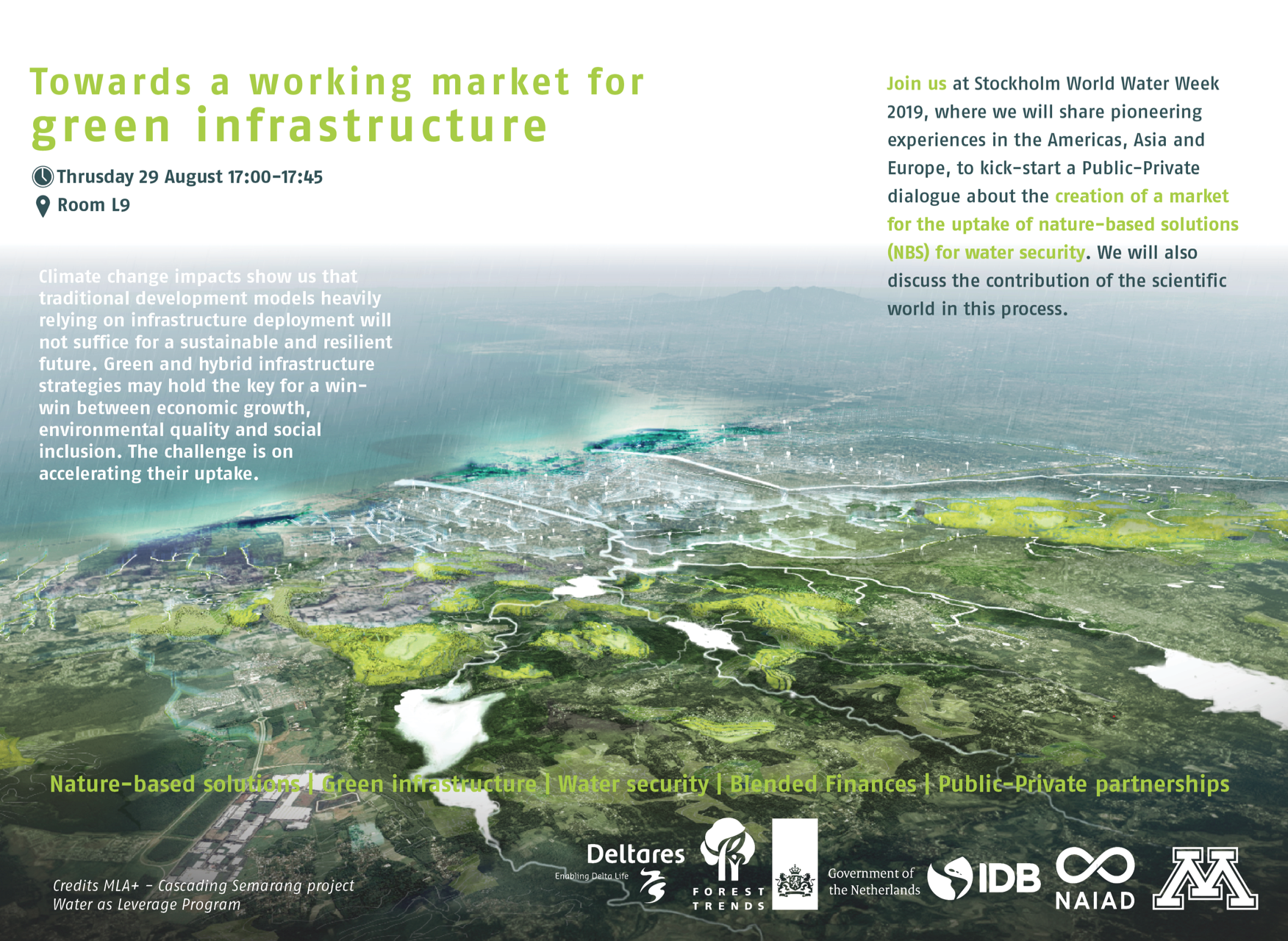
World Water Week 2019
Stockholm, Sweden

This year, from August 25-30, World Water Week brings water security and stability to the forefront of the global stage. This year, Forest Trends joins a discussion panel, Towards a Working Market for Green Infrastructure, August 29. Representing Forest Trends, Boris Ochoa-Tocachi from Imperial College London will be in Stockholm this week. This session will highlight developments in Peru and the Natural Infrastructure for Water Security Project as well as work of Forest Trends partners John Matthews (Alliance for Global Water Adaptation), Deltares (Monica Altamirano), and Kate Brauman (University of Minnesota, Institute on the Environment, Natural Capital Project) among others (OECD, IDB).
Climate change impacts show us that traditional development models heavily relying on infrastructure deployment will not suffice for a sustainable and resilient future. Green and hybrid infrastructure strategies may hold the key for a win-win between economic growth, environmental quality and social inclusion. The challenge is on accelerating their uptake.
Diverse initiatives are advancing the evidence on the effectiveness of green infrastructure to achieve multiple SDG’s and manage multiple risks (i.e. water, health, and climate) in a cost-effective manner. However, to speed up the mainstreaming and upscaling of initiatives it is key to bring all available pieces of evidence together and facilitate a Public-Private dialogue that results in a shared strategy for the creation of a working market; a steady pipeline of high-quality projects and jobs.
Inspired by pioneering experiences of the co-convenors in the Americas, Asia and Europe; the objective of this showcase is to kicks-tart a dialogue with worldwide leading actors in the public and private side of the equation: public procurement agencies, dredging and construction contractors, real estate and infrastructure project developers, financiers and key beneficiaries such as water utilities.
Based on the challenges posed by the practitioners, scientists and NGO’s will respond to these challenges. The outcome will be an action and research agenda that accelerates the creation of a market for the uptake of NBS for water security and considers the use of blended finance strategies.
